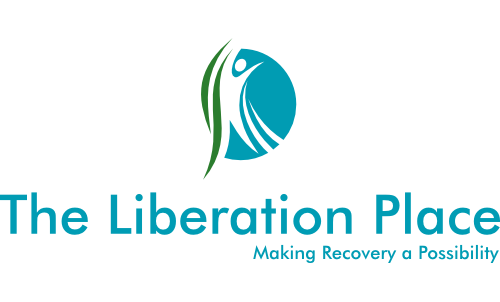Emotion Regulation Skills
Before we get into the many different skills of Emotion Regulation available through the Dialectical Behaviour Therapy Skills Training program, it is absolutely essential to understand that these skills in particular, will only be effective if we have a solid foundational practice of using the previously discussed Mindfulness and Distress Tolerance skills already in place. There is nothing wrong with learning the skills of Emotion Regulation to get familiar with how they can be effective in helping us to understand why we do what we do. At the same time, keep in mind that unless we have the mindful awareness to notice the emotional distress that comes into our system, and the skills in place to help us handle the way this makes us feel, it going to be incredibly difficult to use Emotion Regulation in a way that will be effective for us to Live the Life we Want to Live.
In a Dialectical Behaviour Therapy model, Emotion regulation is where we start to do “the work” in changing the rigid connection we have to our stories from the past. It’s where we begin to take apart the negative core beliefs that are connected to our unmet childhood needs. These beliefs are driven by the schema we created during the formative years of our lives, and it is the emotional impact of these childhood stories that activates the ineffective coping mechanisms we are now desperately trying to change. When we begin to take apart the impact of our past, it’s understandable that the emotions we’ve been running from, probably for the vast majority of our lives, come flooding to the forefront of our personality system, increasing the desire to escape from these incredibly uncomfortable feelings. This is why we have to build a solid foundation and be well versed in the use of our Distress Tolerance skills, before we can dig into these difficult emotional experiences.
“It is the emotional impact of these childhood stories that activates the ineffective coping mechanisms we are now desperately trying to change.”
~Steven Morris RP.
For me, in the work I do with both myself and my clients, this is where I begin to look at things from a Schema Therapy perspective. As understanding my personality as a multiplistic entity that is dialectical by nature is how we get to the core of the reasons we use addictive, obsessive, and compulsive coping mechanisms as the solution to all of our problems. If you take a look around the social media platforms, and the website of The Liberation Place, you will find a lot more information on the concepts and skills involved with understanding your own specific Schemas, along with ways to identify, not only them, but also the Modes of behaviour that parts of your personality use to deal with the emotional impact of your own unique childhood stories. Using the Schema Therapy approach, builds a solid understanding for our personality system, and when integrated with the DBT Emotion Regulation skills, provides the opportunity for real sustainable change.
The overall goal of practicing DBT Emotion Regulation skills is primarily to reduce our own emotional suffering. However, it’s important to acknowledge right from the start that it’s not about removing an unwanted emotion, as this is actually an impossible thing to do. Emotions are a natural and necessary part of the human experience, and it’s a fact that some individuals will always be more emotional than others. This is quite simply something that we have to learn, understand, accept, and develop an ability to work with, in order to Live the Life we Want to Live. As I said before, Emotion Regulation revolves around our ability to Identify the emotional distress that comes into our system, by using the mindfulness skills of Observe and Describe, Nonjudgmentally, along with increasing our knowledge and understanding for what our emotions, and the behavioural responses they activate in our system are actually trying to do for us. In other words, what purpose do they serve.
"Emotions are a natural and necessary part of the human experience, and it’s a fact that some individuals will always be more emotional than others."
~Steven Morris RP.
In order to reduce the impact of what we call secondary distress, otherwise known as uncomfortable emotional experiences, we have to slowly and deliberately expose the parts of our personality to the primary emotional experience that generates the fear within our personality system. If we do this inside of a nonjudgmental, and compassionate internal atmosphere, we can begin to achieve a level of Emotion Regulation that makes Living the Life we Want to Live a distinct probability, not just a possibility. This involves taking intentional actions that activate the parts that sit in this fear, so we can learn how to work with thoughts and feelings that come up. In this context, practicing mindfulness for our own emotional responses can be thought of as a form of exposure therapy, teaching the different parts of our personality that it’s ok for us to feel the way we feel, and at the same time, learning how to remove the behavioural rigidity attached to the uncomfortable emotion, and self sooth in a healthy and effective way.
By developing the skills of Emotion Regulation, we are attempting to build our own internal ability to decrease the frequency at which we are impacted by an emotional experience that causes our uncomfortable feelings. The skills available to us in Emotion Regulation support us in reducing their ability to start in the first place, and if in the challenging circumstance that they’ve already started, change the way we relate, and also habitually react to them too. Using the DBT skills of Emotion Regulation will help improve our ability to decrease the level of emotional vulnerability we experience when blended with the parts of our personality that exist inside of our emotion mind. These skills will also assist us with increasing our resilience and improve our ability to cope with difficult people for us to be around, difficult places for us to be, and difficult things for us to experience. In essence, Emotion Regulation is defined as the ability to control or influence which emotions we have, when we have them, and how we express the emotional experience we are currently having.
"Emotions are a natural and necessary part of the human experience, and it’s a fact that some individuals will always be more emotional than others."
~Steven Morris RP.
From a Schema Therapy perspective, when we know what stories we are buying into, and can identify the modes of behaviour that are present in our system, we can use the skills of Emotion Regulation to help release the burden of responsibility being held by specific parts of our personality to have a behavioural response to an emotional experience that will shut down the thing we are trying to avoid. The specific DBT Emotion Regulation skills that are taught in this module are designed to do this by meeting the following goals:
Understanding and naming our emotional experience.
Learning how to Self-validate to alter unwanted emotions.
Understanding ways to reduce our vulnerability to parts that sit in Emotion Mind.
Managing the parts that go through the extreme emotional experiences.
On the website pages that follow, we will briefly explore each of the DBT Skills that are involved in the implementation of these goals, so you can decide which ones are a good fit for you. Remember, in order for DBT skills to be effective in Living the Life we Want to Live, we have to make them a lifestyle choice. In other words, it's not about learning the skills, it's about living them. As always, we do this by following our motto of practice, practice, practice the skills. Then when you think you've practiced them enough, practice them some more.
Download the PDF of this Page
Follow us on Social Media





